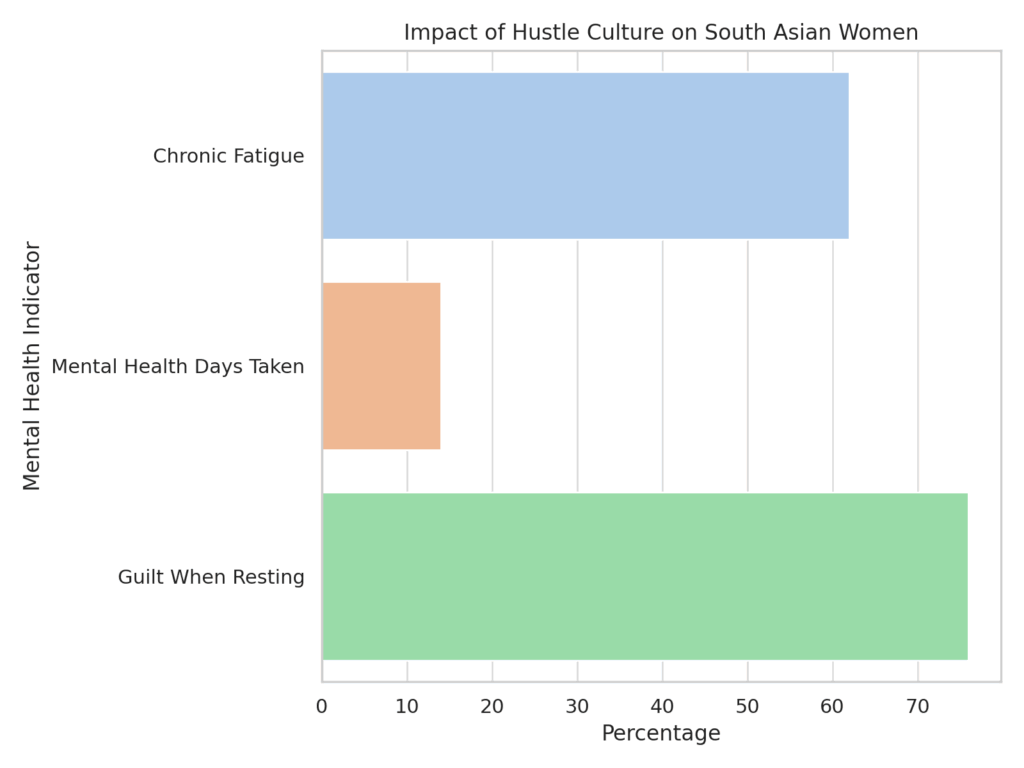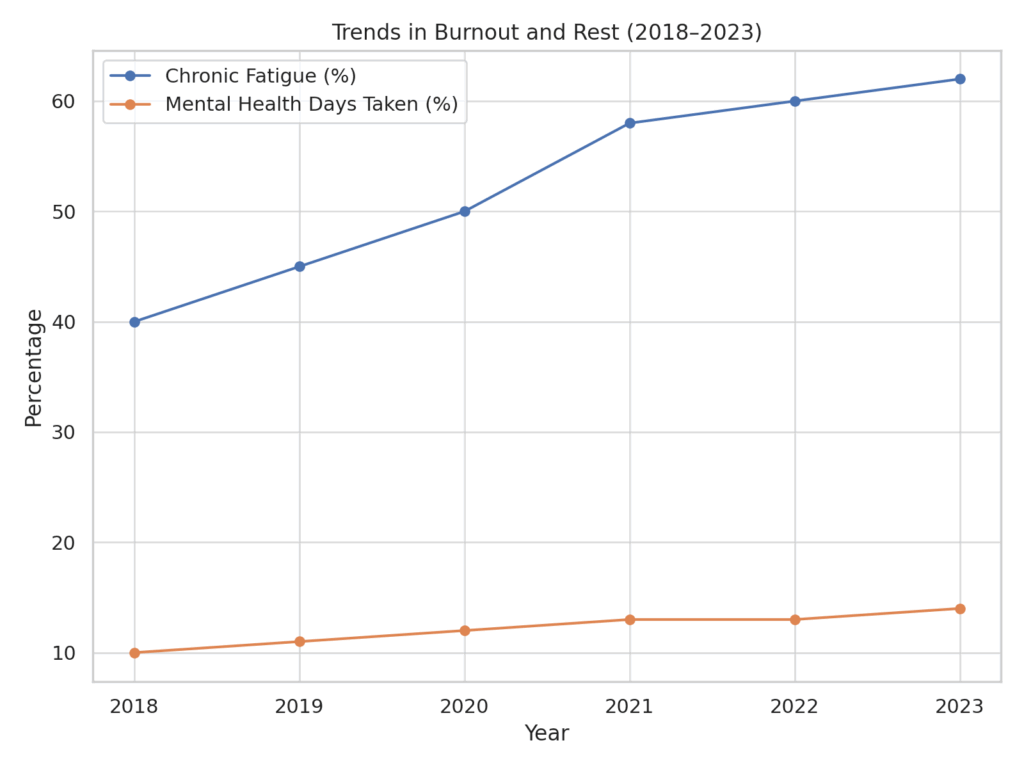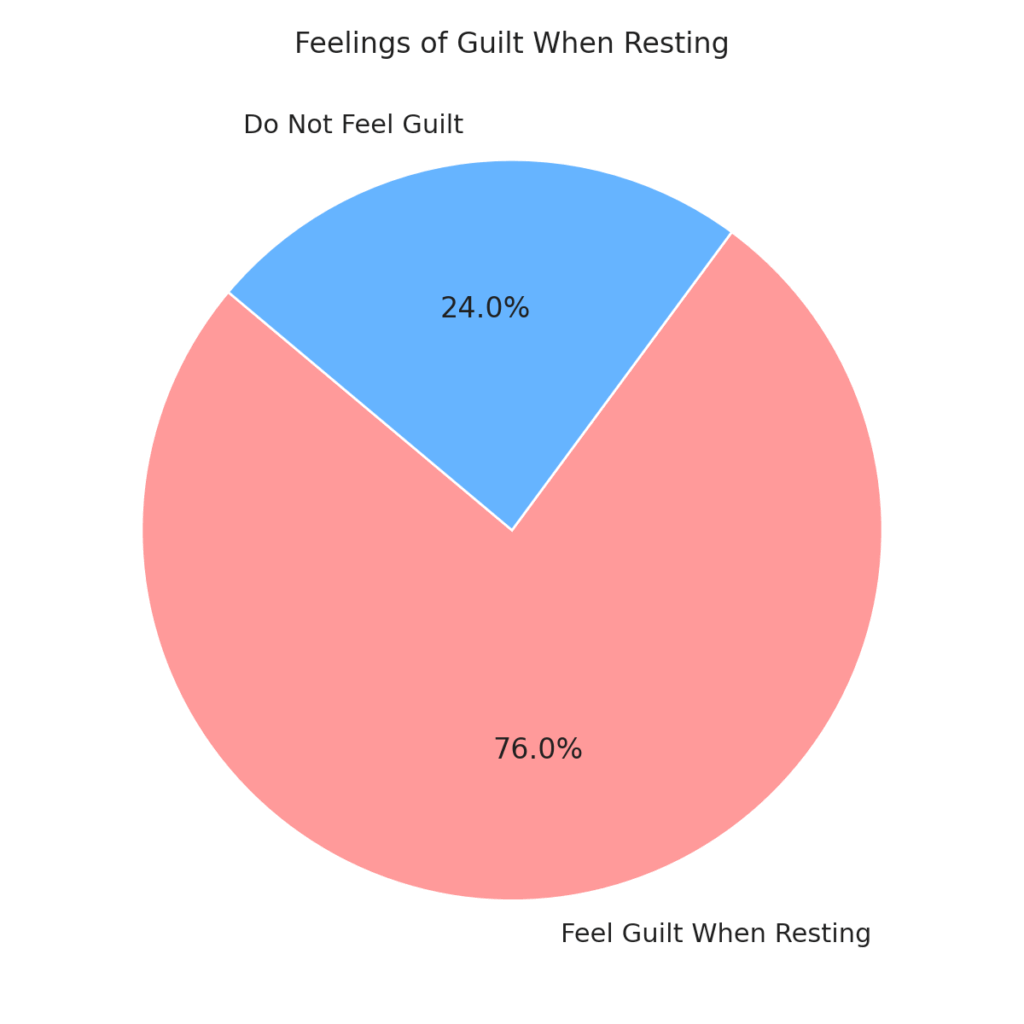
Opening Reflection:
From the moment we are born, South Asian women are taught to be useful — to study hard, work harder, and never stop proving our worth. Rest, in this context, is often seen as laziness or indulgence. But what if the true rebellion isn’t pushing ourselves to the brink of burnout — it’s resting without guilt?
The Cultural Coding of Work Ethic
Many of us grew up in homes where our mothers never sat down. Rest was earned only after everyone else’s needs were met. The idea of “doing nothing” was a foreign concept, sometimes even shameful. We absorbed these messages early — that productivity equals value, and our stillness must be justified.
Hustle culture magnifies this pressure. We’re told to work multiple jobs, start side hustles, climb corporate ladders, all while performing emotional labor for our families and communities. The result? An epidemic of burnout that disproportionately affects South Asian women, often in silence.
Stats That Speak Loudly



- 62% of South Asian women in the U.S. report chronic fatigue and burnout-related symptoms (South Asian Wellness Report, 2023).
- Only 14% have taken a mental health day in the past year.
- 76% feel guilty when they rest, even if exhausted.
These numbers don’t just reflect overwork — they reflect internalized expectations that say our value lies in how much we can endure.
Rest is Resistance
🧘♀️ Reclaiming Rest: Reflection + Reset Worksheet
Section 1: Your Relationship With Rest
| Prompt | Response |
|---|---|
| When was the last time I rested without feeling guilty? | _________________________________________ |
| What messages did I hear about rest growing up? | _________________________________________ |
| Do I equate rest with laziness? Why or why not? | _________________________________________ |
| What are 3 activities that genuinely help me feel restored? | _________________________________________ |
Section 2: Boundaries & Burnout Check-In
| Statement | Yes / No | Notes |
|---|---|---|
| I often say yes to work even when I’m mentally tired. | ☐ Yes ☐ No | __________________________ |
| I check my work messages/emails outside work hours. | ☐ Yes ☐ No | __________________________ |
| I feel guilty when I relax while others are working. | ☐ Yes ☐ No | __________________________ |
| I’ve experienced burnout in the past 6 months. | ☐ Yes ☐ No | __________________________ |
Section 3: Designing a New Rest Routine
| Intentional Rest Practice | Frequency | Notes/Goal |
|---|---|---|
| Quiet time (no phone, no work) | ___ times/week | ___________________ |
| Journaling or meditation | ___ times/week | ___________________ |
| Saying no without guilt | ___ times/month | ___________________ |
| Scheduling a mental health day | ___ per year | ___________________ |
Reflection Prompt:
“What would it look like to honor my body, mind, and heart by choosing rest?”
📝 Write your answer here:
Rest is not a luxury. It’s a basic human need — and in the context of cultural and gendered pressure, it becomes an act of resistance. Rest allows us to reconnect with ourselves outside of roles, outside of proving. It creates space for healing, reflection, and intentional living.
When South Asian women reclaim rest, they are challenging generations of survival mode. They are choosing to live, not just to perform.
Reframing the Narrative
Rest doesn’t make you weak. It makes you sustainable. Whether it’s saying no to extra work, taking a nap without guilt, journaling without an agenda, or choosing a slower life path — these are not failures. They are radical acts of self-preservation.
Quote to Carry With You:
“You are not a machine built to serve. You are a human being who deserves to breathe, pause, and simply be.”
— Rest Advocate & South Asian Mental Health Educator
No Responses